Birdman or (The Unexpected Virtue of Ignorance): Deep Longing and Superheroes
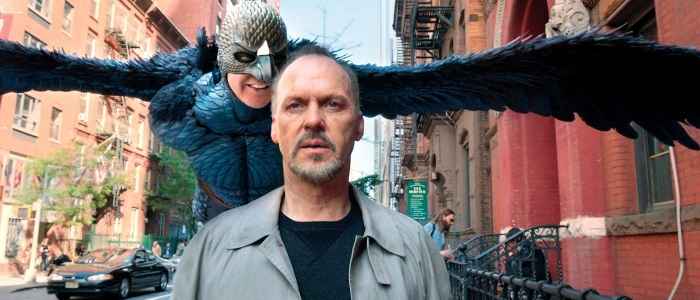
Everyone wants to feel important in some way, and the interactions with family and friends help mold our future importance. However, what is often overlooked is how even one person gives us meaning; never realizing how much a particular person mean to us until it is too late. It does not mean that having an abundance of friends and loved ones is bad, but it can overshadow the impact of one human being can have on another. This is very prevalent in Hollywood, where it matters not how much a particular fan means to an actor, but how many fans an actor has. Fans’ enthusiasm for a particular actor/actress can determine why some actors stay in the spotlight while others fade away. The academy award winning film, Birdman: or (The Unexpected Virtue of Ignorance), directed by Alejandro G. Iñárritu, analyzes what it means to be loved, and how being popular and being loved are not the same thing.
In this comedic drama, Riggan Thomson (Michael Keaton) is a washed up actor trying to jump-start his career by directing and starring in his play titled What We Talk About When We Talk About Love. In his youth, he was best remembered for playing the character Birdman, but he wants to make this play to get away from that image. Riggan does not want to be remembered as just a guy in a bird suit. Not only is his career in shambles, but his family/love life is also troubled. He is divorced from his wife, his daughter Samantha (Emma Stone) is a recovering drug addict, and the relationship with his girlfriend, Laura (Andrea Riseborough) seems to be losing its steam. On top of that, Riggan has to deal with the ego-filled method actor Mike Shiner (Edward Norton), as well as the constant reminder of troubled production of his play from his friend/agent Jake (Zach Galifianakis).
Commentary on Superhero Films
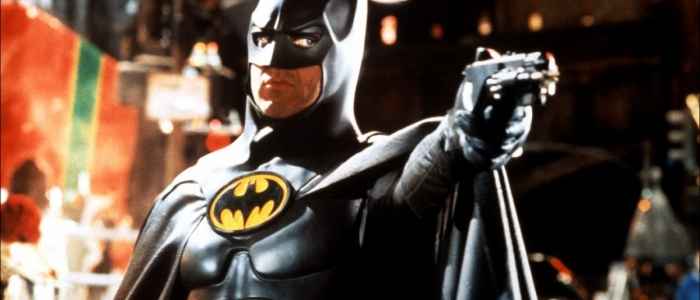
Birdman falls into the ‘meta’ category of comedy, meaning the film is self-aware and it is not afraid to embrace it. This is evident with the deliberate casting of Michael Keaton, who himself is best known for his portrayal of Batman in Tim Burton’s Batman (1989) and the follow up, Batman Returns (1992). Michael Keaton mirrors his character in Birdman because he himself is really only best know for playing Batman. In the film, the Birdman character torments Riggan, representing his self-consciousness by harping on all of his noticeable flaws. He calls Riggan fat, wrinkly, an ineffective father, a lousy director, but more importantly, his self-consciousness keeps forcing him to return to the role of Birdman. This way, people would love him again, as Hollywood blockbusters always draw in a huge crowd of fans. Alejandro G. Iñárritu has discussed in interviews how he does not personally care for superhero films. Here is a quote from his discussion of superhero films in Deadline:
“They have become poison, this cultural genocide. Because the audience is so overexposed to plot and explosions and shit that doesn’t mean nothing about the experience of being human.”
Even though the director may dislike superhero films, Birdman is not just way for Iñárritu to rant on major Hollywood films. He wanted to focus more on how the actors/actresses who play these superheroes on the big screen are viewed through the public eye. Birdman does ask the important question of how do actors outlive their superhero performances. In many ways, playing a superhero can be a double-edged sword. Everyone will recognize a specific actor, yet if the actor plays the character too early in their career, it can withhold them from future roles.
Christopher Reeves was best known for playing Superman, yet no one can recall another film he did outside that franchise, even after his saddening death. Adam West played Batman in the 60’s live action show, and the only roles he gets are comedic renditions of his version of Batman. One cannot help but wonder if this could happen to our current actors in superhero films. Robert Downey Jr. has ingrained so much of himself into the role of Iron Man that it is hard for him to open a film without the iconic armor accompanying him. Who is to say that Henry Cavill won’t avoid the Superman curse, considering he stared as the character in Man of Steel and in the upcoming Batman v Superman: Dawn of Justice? Superheroes are icons to everyone and audiences often blur the line between character and actor. Is the actor important to the audience, or is it the character and property that keeps them coming back?
Riggan’s Dilemma
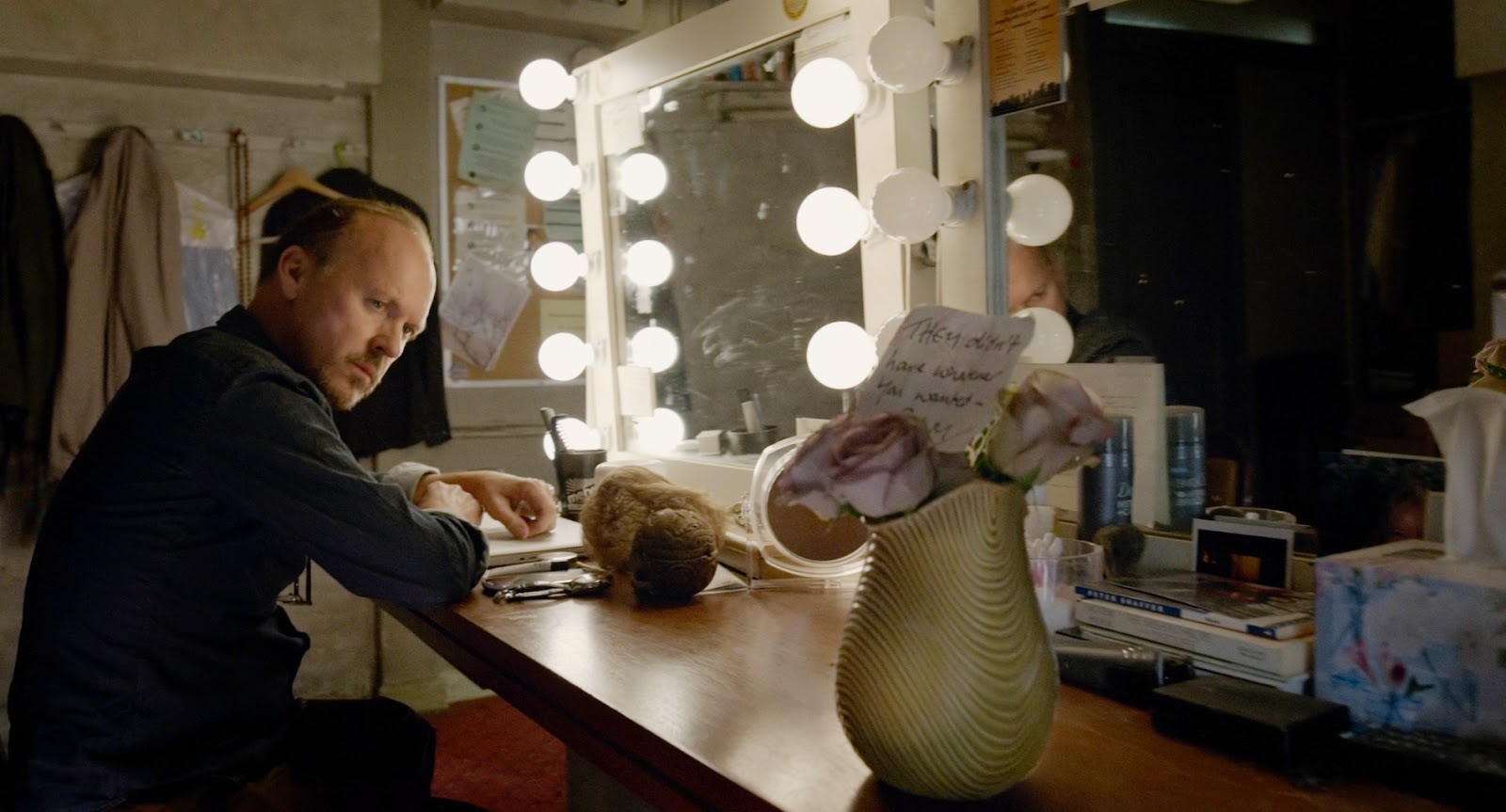
While the context of superhero films is present in the film, it is merely the subtext to a bigger message. The persona of Birdman plays into Riggan’s dilemma of being loved by many, but at the same time by no one at all. The scene where a middle-aged couple and their kid take a picture with him does show he has fans. However, the only reason the couple wanted his picture was because they recognized him as Birdman, not as Riggan Thomson. Fans may love him, but it is a fake love, a love that cannot make Riggan whole as a human being. He is essentially caught in entertainment limbo and he feels it impossible to crawl his way back up to super-star status. Riggan makes his play to be relevant again, but he also does it to express his deepest fears of loneliness. The title of his play was based on Raymond Carver’s short story of the same name. This story is about two couples discussing the trials and tribulations of relationships.
While being a decent short story, the characters point out to Riggan that the story seems formulaic, and does not really offer anything fresh when it comes to theater entertainment. In reality, Riggan is making the play for himself because he wants to act out his inner struggles to an audience. If he really wanted to, Riggan could have made a play that was profound and avant-garde, but instead he makes a conventional play. This is because his whole career as a superhero was based on convention. The mere fact that Riggan makes a play to let off some steam, rather than exploring deep meaningful expressions, shows how distanced he is from any emotional connection to his audience and his loved ones.
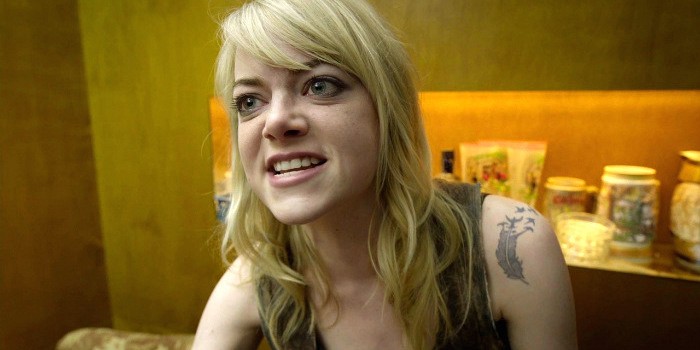
His girlfriend is mostly apathetic towards Riggan, and his daughter Samantha has too much of a negative outlook on life. She blames her life problems on Riggan, and she simply accepts that most people never amount to much in life. This is symbolized in how she was instructed in rehab to write on lines on toilet paper that represents every hundred years that humans have live on earth; showing how minuscule our existence is. This quote, from when Samantha is arguing with Riggan, sums up her rather bleak life motto:
“I mean, who the fuck are you? You hate bloggers. You make fun of Twitter. You don’t even have a Facebook page. You’re the one who doesn’t exist. You’re doing this because you’re scared to death, like the rest of us, that you don’t matter. And you know what? You’re right. You don’t. It’s not important. You’re not important. Get used to it.”
True, not everyone will achieve fame and fortune, but this defeatist attitude Samantha carries with her is unhealthy. Everyone should achieve a greater purpose in life, even if someones future endeavors seem rather grim. Does Samantha represent the defeatist outlook in todays generation? Is being a celebrity or any other higher authority the only true way to measure value? No, but that is certainly what society leads people to believe. This is why Riggan is so torn in his life; he got too enthusiastic as a beloved actor and metaphorically flew too close to the sun.
Riggan’s Telekinetic Powers
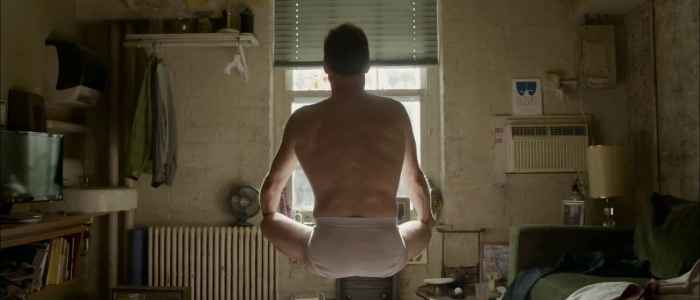
In the film, Riggan is unexpectedly shown to have telekinetic powers, yet he only uses his telekinesis when the audience is viewing the world through his perspective. The film is firmly grounded in reality, yet the idea that Riggan has telekinetic powers is not outright refuted. The film never gives a solid answer for his powers and there are many different ways it could be interpreted. His telekinetic powers could symbolize Riggan’s lack of control in his life. Nothing ever seems to go his way when regarding his family or career responsibilities, and everyone constantly tells him how to live his so-called life. However, in his own subconscious, he is in control and he can do whatever he wants.
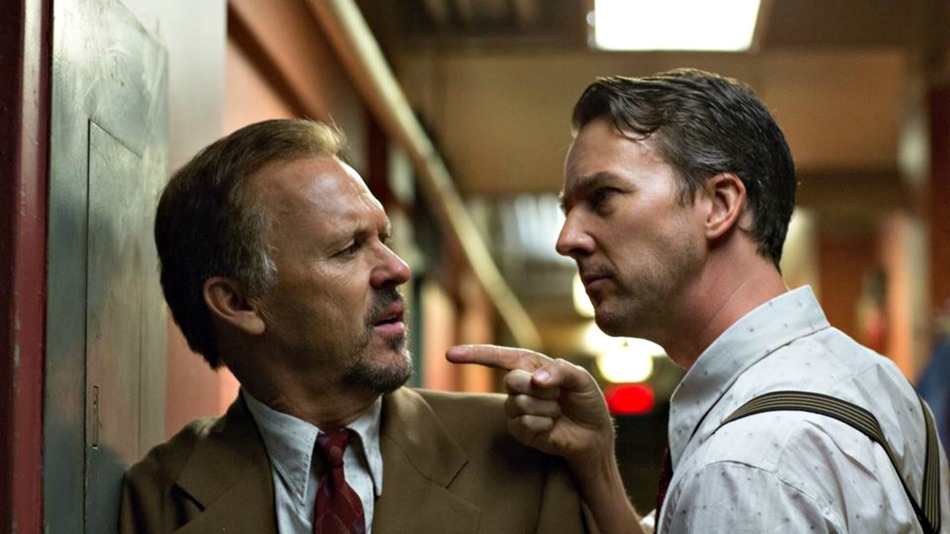
Riggan’s telekinetic powers are a metaphor for his ego as a once great actor. He can’t accept that he is an average citizen instead of a world-renowned actor, so he imagines himself as a higher being. The scene where Riggan is flying over the city is symbolic because it demonstrates how he literally thinks he is above everyone else. This is partially why the actor Mike Shiner infuriates Riggan so much. Mike represents the ungratefulness of being an actor. He thinks he is better than everyone, and he doesn’t appreciates anyone in his life, including his own girlfriend Lesley, who also stars in the play. Mike embodies a younger Riggan because he was also regrettably egocentric back in his heyday by neglecting his wife and daughter.
Part of the reason why Riggan is engaging as a character is because of his inherent flaws. The audience can relate with him in his effort to find meaning in his life. Yet the way he acts makes it clear as to why his life turned out so badly. He is impulsive and he blames everyone else for his problems, making himself his own worst enemy. He hates super-stars for being in huge Hollywood blockbusters when really he is just jealous that his times of playing a superhero are over. Riggan cannot stop living in the past, but how can he move on when everyone constantly reminds him of Birdman?
The Ending
By the end of the film, Riggan has had enough with life and irresponsibly brings an actual gun onto the stage of his play instead of a prop gun. It is the final act of the play, and Riggan monologues to the audience about his character’s loneliness, and he attempts suicide on stage. The audience assumes it is simply part of the play, so they applaud anyways, oblivious to what really happened. Miraculously, Riggan survived the gunshot, only having his nose shot off in the process. He awakes to find himself in a hospital room with bandages covering his face, which are reminiscent of his Birdman mask. His recent act may have caused controversy because he brought a gun on stage, yet it also caused his fans to finally cry out for him, not for Birdman.
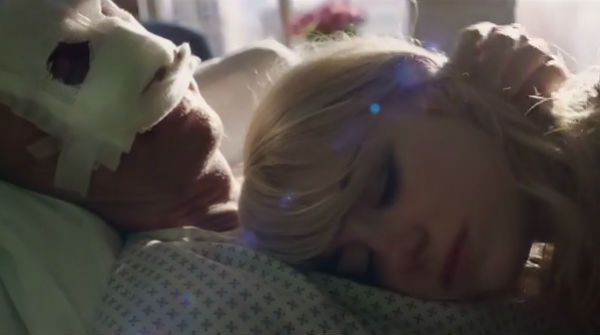
He is now relevant to fans once more and, more importantly, Samantha. She comes to visit him, realizing how much he means to her as a father. His attempted suicide reminded her that life is short, and how we as humans should not take our loved one’s mortality for granted. After Samantha leaves the room for a second, Riggan goes to the bathroom and peels off the bandages to reveal his new nose. Riggan’s new nose symbolizes him becoming a new person. The peeling of the Birdman-shaped bandages symbolizes him stripping away his Birdman persona. This metaphorically shows how Riggan does not need the Birdman persona anymore.
Instead of the film just ending there, the film finishes with Riggan looking at birds flying in the sky. He decides to open the window, and the next scene shows Samantha reentering the room, where Riggan is nowhere to be seen, suggesting that he attempted suicide once again. However, when she looks outside the window, she looks up, suggesting that Riggan is flying away to a better place. The ending is not clear at all, but that was likely intentional on the director’s part because he felt the ending should be interpretable to whoever watches it.
Birdman brilliantly holds up a mirror to what the image of Hollywood has become, and how authenticity in film is at times overshadowed by huge franchises. It also offers an important moral of not letting the whole world form who you are, as you will just be trying to live up to unlivable standards. The message is more profound than just ‘accepting who you are’; it is how popularity should not overshadow the simple things in life, such as family.
Work Cited
Birdman: Or (The Unexpected Virtue of Ignorance). Dir. Alejandro Iñárritu. Perf. Michael Keaton, Emma Stone, Edward Norton. Fox Searchlight Pictures, 2014. Film.
Fleming Jr., Mike. “Alejandro G. Iñárritu And ‘Birdman’ Scribes On Hollywood’s Superhero Fixation: ‘Poison, Cultural Genocide’ – Q&A.” ‘Birdman’s Alejandro González Iñárritu & Co-Writers on Superhero Craze- Deadline. Deadline, 15 Oct. 2014. Web. 3 Nov. 2015.
What do you think? Leave a comment.











What we see is what the Birdman is feeling.
I regret not watching this movie earlier this could be one of the best drama movie i ever seen.
I find it very interesting that the original ending was written to show Johnny Depp preparing for his own play, with a Pirate of the Caribbean poster in the background.
Birdman is one of my favorite recent films. One of the key lines is when Riggan’s ex-wife tells him that he mistakes adoration for love. Riggan has fooled himself into thinking that he is trying to create a great work of art with his Carver adaptation, yet he is really acting as egotistically as he did when he was Birdman. Writing, directing, and starring in one’s own play is pretty narcissistic. When the play proves to be a success, he is on the verge of becoming Birdman by other means. He is still chasing adoration, instead of investing in love.
Riggan’s Birdman persona appears to tempt him to return to a glamorous, but self-destructive, lifestyle by making Birdman 4. In reality, the Birdman persona is tempting him to suicide, as we see when Riggan finds himself standing on the ledge, about to jump. Not only is Birdman the story of a man wrestling with his ego, but it dramatizes how self-assertion is self-destruction. You say that Riggan’s telekinetic powers symbolize his lack of control over his life, but I would modify that a bit. They represent the fantasy of control, the fantasy of total power over one’s circumstances. This fantasy, however, is ultimately self-destructive. The Birdman persona tempts Riggan to be Icarus, whose ambition led to his destruction. The film’s critique of superhero movies is that they indulge us in this collective fantasy of ultimate power, which is inevitably egotistical and self-destructive. I still love superhero movies, but it’s a pretty strong critique of the genre.
This movies speaks beyond a man trying to reseek former glory, but also about each and every person’s desire to be something extraordinary take on its own personification.
Great movie…and loved the reference to the Raymond Carver short story.
Great article on a fantastic movie. Michael Keaton really did an excellent job in a fitting role for him.
Thank you Emily. Im glad to see Michael Keaton come back to acting.
This is the kind of film that only intelligent film geeks will appreciate.
I am a fan of comic book movies and I am happy and pleased with the outcome of this movie.
I found the film to mostly focus on bringing out multiple themes revolving around life, self dilution, modern media, human relationships, and entertainment as a whole.
The director deserves plaudits to make the movie smart and funny at the same time, which is an incredibly hard feat to achieve for any maker.
Birdman is one of the most unique films I have seen in quite some time.
The thing that made this film seem empty was that for the whole movie I just wanted to see Riggan do something to show that he may be just a man, but that in his own way he was more heroic (or at least as heroic) as the over-the-top Birdman character. The gun onstage scene would have been perfect for this. It could have been a modern day update of Hero At Large, but instead it felt like a missed opportunity to make something with deeper meaning.
I love how the film is single shot and the cinematography. And I love how the story depicts the downside of having and losing fame and how it can affect people, not just actors.
A jewel of modern cinema!
A bittersweet tragedy.
A wise man once stated “Never make movies about Hollywood, because no body but industry insiders give a crap.” Its not always true, but it is more then it isn’t.
Great interpretation of the movie.
i’ve never seen this movie, but i really dug the article, so i might watch it now for sure — after reading the comments i might have to check it out!
Im glad my article sparked your interest. It is definitely a great film to watch.
It is rare nowadays to find a director so daring and innovative as Iñárritu, a director that refuses to follow common trends. Please, let his next movie with dicaprio be amazing.
I’ve heard that The Revenant has gotten, ok, reviews. I do hope Leo finally gets that Oscar, but it will probably be a tight competition for DiCaprio and Michael Fassbender for Steve Jobs.
While Hollywood is quite consistent in spelling everything out for viewers, world cinema is not afraid of creating impressions and leaving loose ends untied. This is where this movie succeeds.
My respect for the director and all the cast members.
This movie is extremely overrated! The story is just as bad as the play, they are trying to act. The major theme of repetition is plain boring!
Birdman is such a movie. A love song to actors and the acting profession that encapsulates all of how screwed up most of it is.
I love how the ending’s suggestion of Riggan moving on to a “better place” seems to have spilled over into Keaton’s career. He seems to be leaving Batman behind by finding the admiration of critics (something Riggan struggled to do) and audiences with his role in “Spotlight.”
Yeah, It’s one of those examples of how film often repeats real life. I’m glad to see Michael Keaton back in the spotlight, no pun intended 🙂
Wonderful article! While reading this, I couldn’t help but think how the cinematography fits within the film’s message and Rigan’s rise and rebirth. Rigan obviously has an ego, and his artistic pursuits are to reclaim himself favorably in the eyes of public opinion. However, since the film is shot continuously it defies Rigan’s ego in a lot of ways. Even in the few scenes without Rigan’s the film focuses on the city. The film continues, without a hitch, even without Rigan. Showing that while he may not like it, life moves on without his consent. Whether he likes or not.
The cinematography is probably the best aspect of this film, and the way you described it totally shows why. Thanks for reading!
“Christopher Reeves was best known for playing Superman, yet no one can recall another film he did outside that franchise, even after his saddening death”
“Michael Keaton mirrors his character in Birdman because he himself is really only best know for playing Batman”
Bold claims. You’re just outing yourself as someone who is probably under 25.
An interesting take on this movie. I really enjoyed the explanation for his telekinetic powers and the reading of that!
A good essay on a movie I enjoyed. Perceptive.
The Iñárritu quote I think has some truth to it. It’s also valuable to not that comic books outside of America are seen more in light of being high culture. This baggage seems to be attached to the critique there.